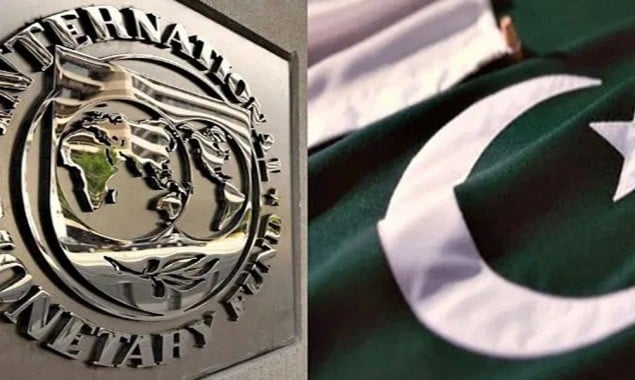Pakistan’s Total Liquid Foreign Reserves Stand at US$ 23.02 billion: SBP
Pakistan’s total liquid foreign reserves stood at US$ 23.02 billion as of...

Govt Sets High Economic Growth Targets With IMF Consent
Apparently, in agreement with the International Monetary Fund (IMF), the government is setting inflation, economic growth and fiscal and core deficit targets for the next financial year, following a change in the economic team and encouraging macroeconomic indicators.
According to the report, a government team in a meeting of the parliamentary committee said that the growth rate of gross domestic product (GDP) for the next financial year has been set at 5% instead of 4.2%, which was also approved by the federal cabinet on April 13.
Inflation is projected at 8.2 per cent instead of 8 per cent, while the overall budget deficit has been increased from 6 per cent to 6.3 per cent of GDP, while the basic deficit is projected at 0.6 per cent instead of 0.1 per cent.
A revised Medium Term Budget Strategy Paper (BSP) was presented to the National Assembly’s Standing Committee on Finance by a team from the Ministry of Finance and the Federal Board of Revenue.
According to the paper, the public sector development program for the next financial year has been increased from Rs 8 trillion last year to Rs 9 trillion.
The committee, comprising members of the ruling opposition, questioned the economic estimates and said similar arguments and objectives had been put forward by different governments.
This was also evident from a presentation in which the budget estimated inflation at 6.5 per cent, which had risen to 9 per cent, and the budget deficit estimate at 7 per cent, up from 7.2 per cent last year.
The Special Assistant to the Prime Minister for Finance and Revenue said that some changes have taken place since the approval of the budget strategy paper by the federal cabinet, including an encouraging growth rate of 3.94% of GDP.
He said that austerity is required while staying in the IMF program. The process of expansion is also under consideration by the government. The government is working closely with the IMF on the current budget.
He also said that the IMF Managing Director has been asked for some concessions for financial expansion in the wake of the third wave of coronavirus to take steps to help curb food and energy inflation.
The BSP estimates that the revised volume of GDP for the next financial year will be 81.4% of the GDP growth rate on the basis of Rs. 54,341 billion as against Rs. 52,462 billion in the previous fiscal. But was 84.3%.
Similarly, in view of high import requirements, the current account deficit is likely to be 4 4.8 billion, which was earlier estimated at Rs 4.70 billion.
Finance Secretary Kamran Afzal said that energy sector subsidies would be further targeted to clear revolving loans and according to the actual estimate of the power division, it would be increased to Rs 5 billion.
In addition, the payment of dues of Independent Power Producers will reduce the revolving debt by Rs. 4 trillion while the remaining Rs. 4 trillion will be reduced through non-cash adjustments between the government and its agencies.
Catch all the Business News, Breaking News Event and Latest News Updates on The BOL News
Download The BOL News App to get the Daily News Update & Follow us on Google News.